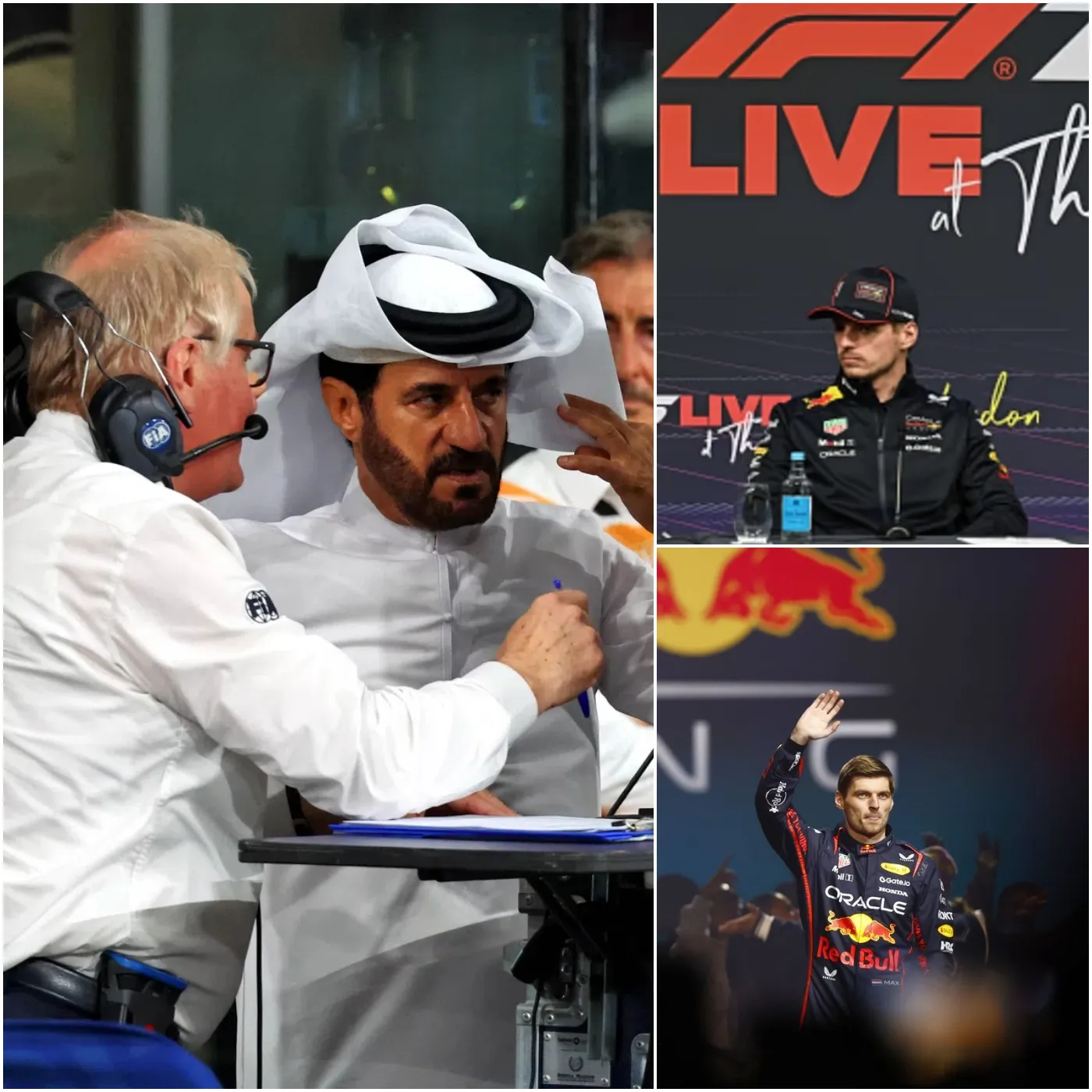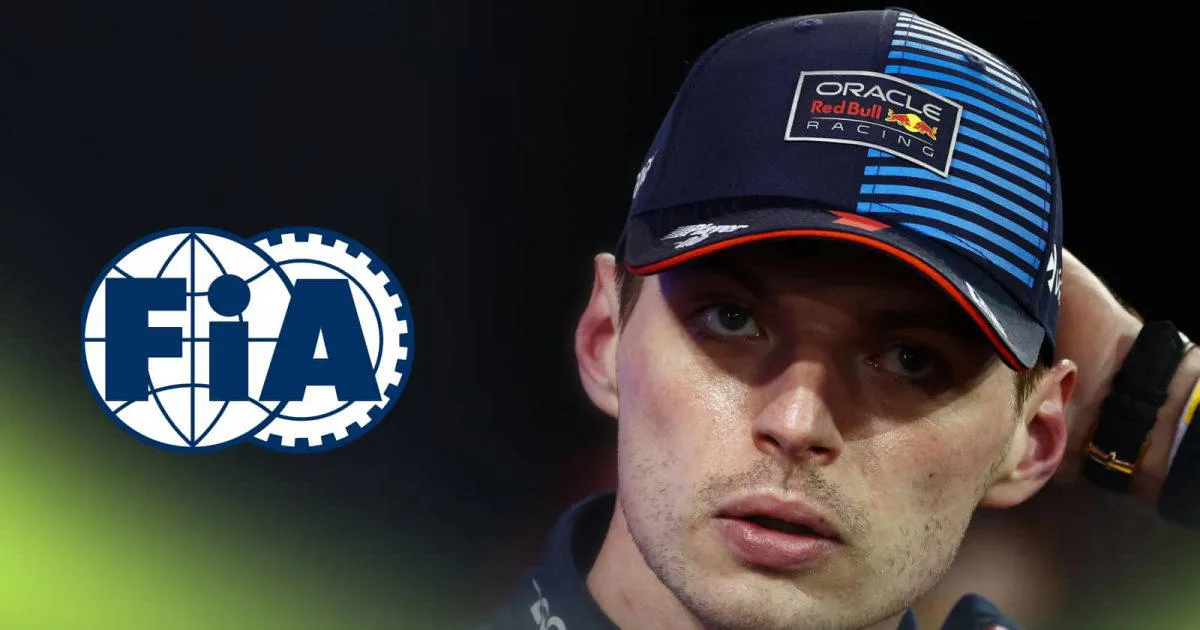

FIA wants to discuss boos to Verstappen at World Motorsport Council
Formula 1 has always thrived on drama, rivalries, and a good dose of tribalism from its passionate fanbase. But now, it seems that the FIA wants to take on a new role: the moral compass of crowd behavior. Reports suggest that the governing body plans to discuss the booing aimed at Max Verstappen and Christian Horner during the F1 75 Live event at their next World Motorsport Council meeting.
Yes, you read that correctly. The FIA, which has struggled to keep a consistent hand on track limits, budget cap regulations, and even its own president’s statements, now wants to weigh in on the ethics of fan reactions. If this doesn’t make you question the direction of F1, nothing will.
Boos, Boos Everywhere – And the FIA is Taking It Personally
The O2 Arena in London played host to the F1 75 Live event, celebrating 75 years of motorsport excellence. But instead of a harmonious love fest, the night turned into a verbal battleground. The moment Verstappen and Horner stepped onto the stage, they were met with a chorus of jeers. The audience wasn’t pulling any punches, and it didn’t stop there. Even presenter Laura Winter faced the wrath of the crowd when she praised the FIA’s contributions to the sport.
This apparently left the FIA “disappointed” and eager to address the issue at the upcoming World Motorsport Council meeting. But let’s take a step back—since when did crowd reactions become an issue for the sport’s governing body? Fans have been booing drivers for decades. Lewis Hamilton faced it in Monza, Sebastian Vettel in Canada, and let’s not even start on Fernando Alonso’s mixed reception throughout his career.
The Verstappen Factor – Why the Hate?
Verstappen is no stranger to being on the receiving end of boos, especially in the UK. After all, his controversial 2021 title win over Hamilton at Abu Dhabi still fuels the fire of F1’s most intense fan war. The ‘Orange Army’ boos Hamilton in the Netherlands; the British fans return the favor when Verstappen steps into their territory. It’s a tale as old as time in sports—if you dominate and beat a local hero, expect hostility.

But Verstappen’s attitude doesn’t exactly help. Unlike Hamilton, who either ignores or plays along with the boos, Verstappen often shows visible frustration. And now, according to his father, Jos Verstappen, Max has decided he will skip any future editions of F1 75 Live held in England. That’s one way to avoid boos, but it does little to ease tensions between rival fan bases.
Should the FIA Even Get Involved?
Here’s the real question: why is this even an FIA issue? The governing body should be focused on maintaining fair competition, improving safety, and ensuring that its own rulebook isn’t as confusing as a Ferrari strategy call. Instead, they’re apparently considering a crackdown on crowd behavior.
Imagine the precedent this sets. Will fans now receive warnings for booing a driver? Will circuits start banning supporters for not showing enough “respect”? Should we introduce a mandatory ‘polite applause’ rule for every podium ceremony? The FIA’s involvement in what is essentially sports fan culture reeks of overreach.
If anything, the governing body should be more concerned about why Verstappen and Horner are getting booed in the first place. Could it have anything to do with Red Bull’s polarizing dominance? Or perhaps the team’s perceived arrogance? These are the real discussions that should take place, not an inquiry into why British fans don’t like Verstappen.
The Hypocrisy of It All
The irony of the FIA’s stance is glaring. When Hamilton was being booed at Zandvoort or Monza, the FIA didn’t rush to make a statement. When Vettel was jeered in the early 2010s, no World Motorsport Council meetings were called. Why is Verstappen suddenly receiving special treatment? It’s almost as if the FIA, whose president has a history of pro-Red Bull comments, is trying to protect its star driver.
Furthermore, the FIA itself has had no problem letting rivalries and controversies spiral when they boost engagement. Controversial stewarding decisions, favoritism accusations, and inconsistent rulings are all fair game. But when the fans express their own emotions, suddenly it’s an issue? The double standards are staggering.
What’s Next? Silence the Crowds?
If the FIA follows through with any action regarding fan behavior, it sets a dangerous precedent. F1 is an emotional sport. Fans live and breathe these rivalries. They cheer, they boo, they throw memes all over social media—it’s all part of the experience. If the FIA starts interfering with how crowds express themselves, where does it end?
Will they start fining circuits for ‘hostile atmospheres’? Will team principals be asked to sign a ‘no controversy’ agreement before stepping onto a stage? Maybe we should just replace live crowds with pre-recorded applause like a sitcom.
F1 is already battling complaints about being too sanitized. Between stricter media control, PR-managed driver responses, and overregulation on track, the sport is in danger of losing its raw, unscripted edge. The last thing it needs is a governing body trying to police emotions.

The Fans Decide, Not the FIA
Let’s be clear: booing is not the end of the world. It’s not violence. It’s not hatred. It’s passionate fans expressing their opinions. It’s as much a part of sports as overtakes, penalties, and shocking Ferrari strategy calls. If Verstappen and Horner can’t handle a few boos, maybe they need a thicker skin, not FIA intervention.
At the end of the day, fans decide the atmosphere of F1 events, not the FIA. Trying to regulate emotions is a futile battle. If Verstappen wants the boos to stop, the solution is simple—win over the crowd. He doesn’t need FIA protection; he needs a PR strategy that doesn’t involve walking away when things get uncomfortable.
The FIA would be wise to drop this nonsense and focus on issues that actually matter—like improving race stewarding, preventing another Abu Dhabi 2021 fiasco, and ensuring their own credibility isn’t further eroded. Until then, fans will continue to cheer, boo, and make their voices heard, whether the FIA likes it or not.


















